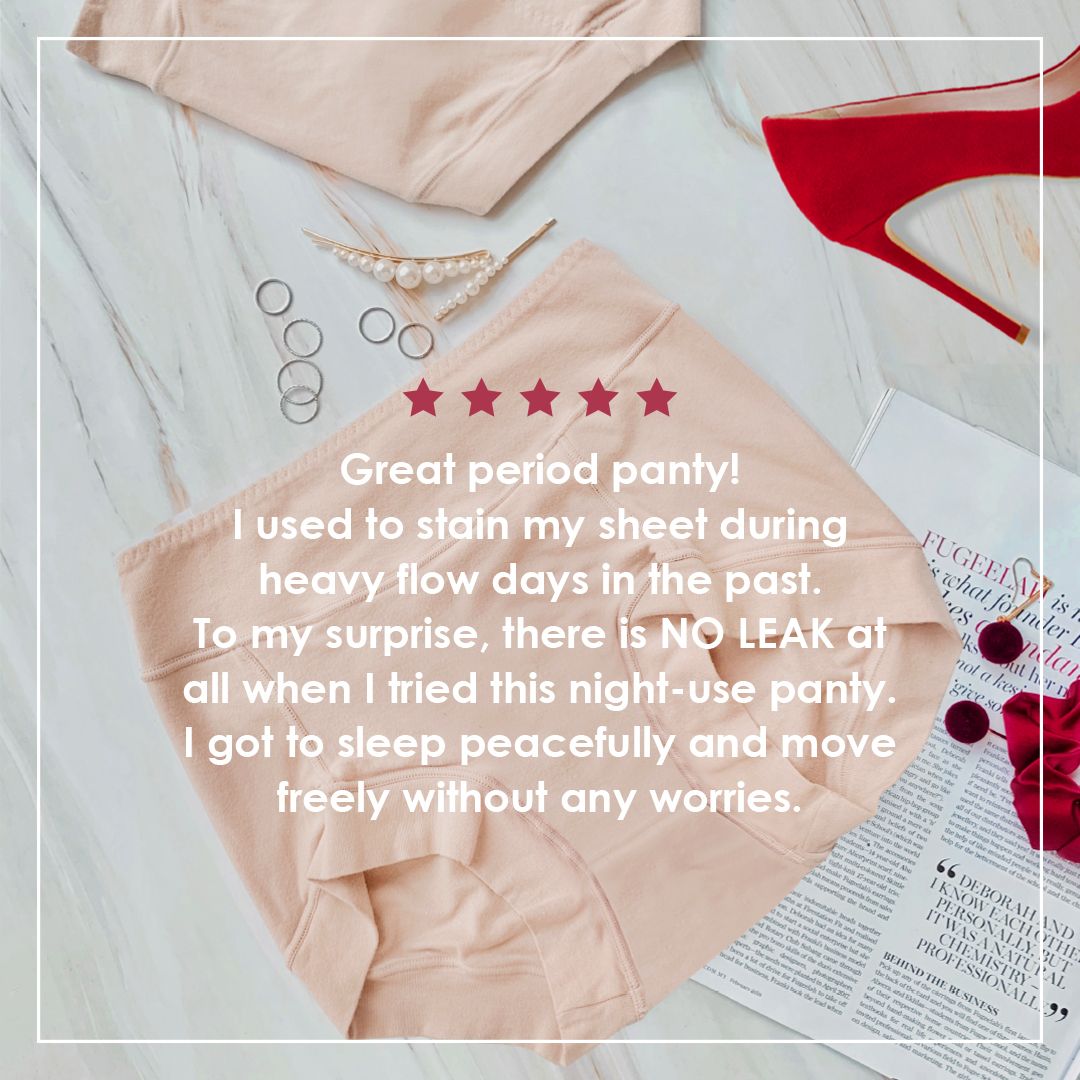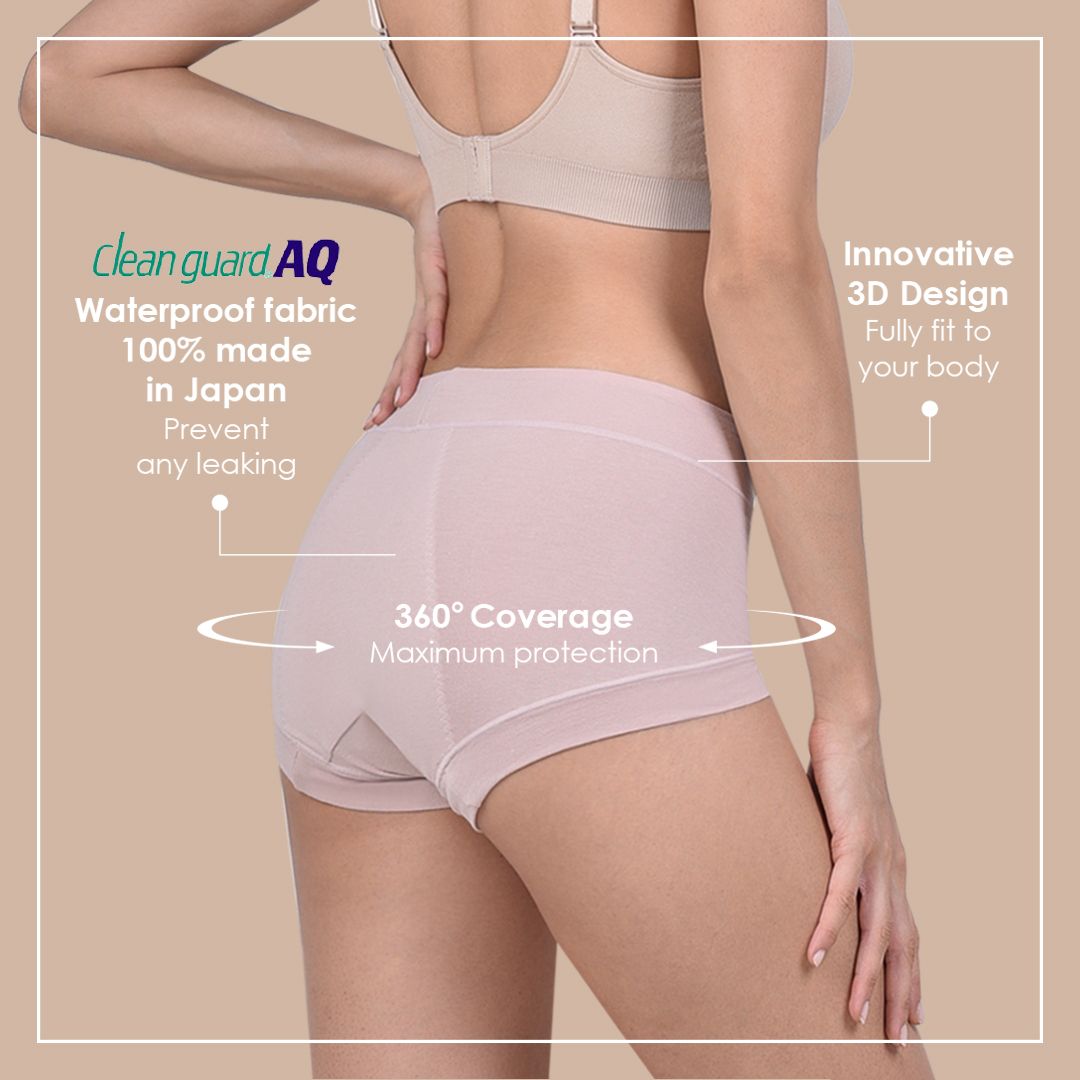Lingerie Sale: Get USD10 off min spend USD100 OR USD20 off min spend USD150, 5 May till 28 May 2025

Menstrual hygiene is an important part of womanhood. It’s also one of the most ignored topics when it comes to women’s health and hygiene.
Menstruation, or periods as we commonly know them, is a part of every woman’s life and it has its own set of challenges too. Tummy cramps, pimples, discomfort, leakages, you name it, and many of girls have suffered through at least one of the symptoms! With that being said, and it being a monthly occurrence for a big part of our lives, it is important for every woman to know about the right menstrual hygiene tips so that we can keep ourselves healthy and have a more comfortable period.
What can I do to maintain period hygiene? Here are 5 menstrual hygiene tips!
1. Change pads, tampons, cups often and as per the recommended frequencies. Not only does this prevent overflows and leakages, or it will also keep rashes, infections and irritation at bay, especially for those with sensitive skin to sanitary pad linings. Pads can often become breeding grounds for bacteria as the menstrual blood sits damp and may get contaminated with sweat or other body organisms.
So, what is the best and most hygienic product during periods? Today, there are pads (either one time use, or reusable ones), tampons, and menstrual cups available to us in our market. Any one of these sanitary products will do the job at keeping you fresh and confident during your period, if used properly, and with these menstrual tips in mind. But, when it comes to what’s best, you’d have to factor in your daily routines, environments to be able to change your pads, tampons, and cups, your own personal comfort levels, and the varying cost factors with each of these products. Some of us may even use a mix of sanitary products depend on how heavy our flow is throughout our period! One additional tip would be to pair each of these sanitary products with a sanitary leak-proof panty these come in day and night usage versions and are made with specially fabricated waterproof fabrics that safeguard against leaks onto outerwear clothing or bedsheets. These products are easy to clean with a quick detergent soak too - try XIXILI's best-selling lingerie wash.
2. Wash regularly, wash with the right products or just with warm water, and always wipe from front to back - Keep the area clean! A women’s vaginal area is a self-cleaning organ, so not much has to be done, except for regular daily washes with either just warm water, or simple, and ideally fragrance-free, non-chemical soap products. It is also advisable to avoid vaginal douches as these cause a pH imbalance and brings you more harm. Also, always make sure to wipe from front to back after going to the toilet to avoid the transmission of bacteria from back to front.
3. Pick the right wardrobe. Breathability and a dry area are key to ensuring your vaginal area doesn’t become a breeding ground for bacteria. Avoid clothing that is tight between your legs, or fabrics that don’t breathe. Wear cotton underwear or sanitary panties that are comfortable and keep you dry through any leakages during your menstruation. If you often experience a lot of discharge as well, sanitary panties come with specially fitted linings that quickly absorb any fluids to keep you dry all day - XIXILI sanitary panties are layered with a Japanese patented CleanGuard lining that’s soft and waterproof to prevent leakages. For outerwear, try to wear loose clothing for the better part of the day, and not tight, synthetic leggings or pants that will allow no air in!


4. Pick the right level of absorbency for your sanitary pad or tampon. With menstrual pads, it’s good to use the right level of absorbency and to change your pad frequently throughout the day to avoid bacteria from having a chance to multiply throughout the day, rather than taking the highest absorbency pad and using it all day. For tampons, it is even more critical to select the right level of absorbency for your day’s flow as tampons left inserted for a longer time, can cause toxic shock syndrome (TSS) which is a serious medical condition caused by a bacterial infection.
5. Dispose off the sanitary pad or tampon properly, and frequently change your underwear. Bacteria can easily spread, especially in warm, moist areas! This includes your bathroom area and rubbish bins. Always be sure to wrap your used disposable sanitary products before discarding them appropriately - avoid flushing them as they can block your toilets, and cause water to back up! Also, be sure to frequently change your underwear to keep the area fresh and clean. In hot and humid weather, sweat does collect onto our underwear. Also, after disposing off the pad or tampon and changing your underwear, be sure to wash your hands with soap and water. For reusable menstrual hygiene products, make sure to wash thoroughly and keep dry in between your periods. Some menstrual cups can be sterilised in hot boiling water, too.
Follow these menstrual tips to stay fresh and confident. And to have a more carefree period! Menstruation is a regular occurrence and a big part of any women's life. Aside from it's discomforts, it is a critical part of our body cycle and which leads to bigger and greater benefits for our body. So, with this, we ought to learn to embrace it, and to live comfortably with it with open discussions on how to manage any discomforts we may have.


